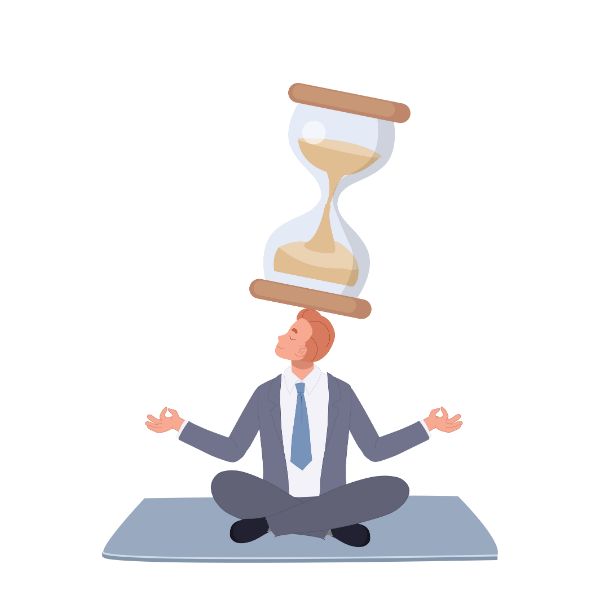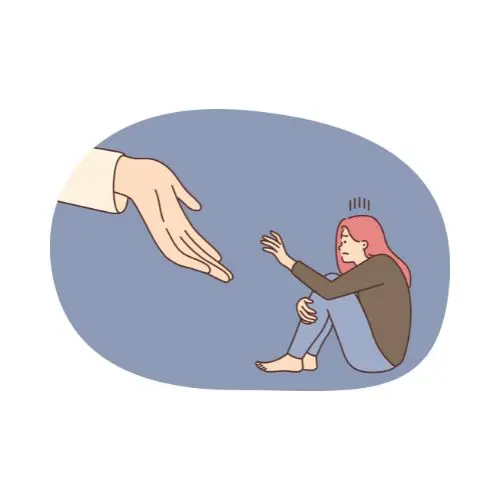Introduction
Depression can be a draining experience, but taking gratitude into your daily life can bring some power and upliftment into your spirits to help you get better mentally-even when you feel depressed. Even on the bleakest days, practicing gratitude may be hard, but research shows that it benefits greatly.
It proves practical approaches to practicing gratitude when depressed, together with how to practice gratitude when depressed, and derives from scientific research and real-world insights.
| Statistics | Facts and Figures |
|---|---|
| Prevalence | According to the World Health Organization, depression affects 264 million people worldwide. |
| Benefits | A consistent gratitude practice can increase feelings of happiness, optimism, and life satisfaction. |
| Neurobiology | Gratitude activates brain regions associated with positive emotions and enhances the production of serotonin and dopamine. |
| Daily Practice | Gratitude strengthens relationships, fosters empathy, and promotes prosocial behaviour. |
| Social Impact | A consistent gratitude practice can increase happiness, optimism, and life satisfaction. |
The Transformative Power of Gratitude
Power of Gratitude Knowledge is knowing that gratitude is not just a simple “thank you,” but it’s a mindset and a transformative practice. Scientific research has proven that gratitude rewires your brain, improves mental health, and enhances positivity. With a focus on appreciation rather than negativity, one can slowly overcome depressive thoughts and emotions.
Start a Gratitude Journal: One of the very effective ways to create and harvest gratitude is by starting a gratitude journal. Each day, write down whatever things are worthy of gratitude, no matter how insignificant they may appear. That will help you deliberately search for the brighter side of your life and stay away from depressive thoughts.
Examples can be as simple as enjoying a sunset, the warmth of a gesture from a friend, or simply some peaceful moment in nature. As you nurture this habit, you train your mind to steer naturally towards the positive and thus toward an optimistic point of view.

Cultivating Gratitude Through Mindfulness
Practice Mindfulness: Mindfulness lets you live and breathe in the present moment, where you appreciate all the little pleasures that life has to offer. Some mindful activities include meditation, deep breathing exercises, or just enjoying a simple cup of tea. Mindfulness is an opportunity to let gratitude bloom.
Pay attention to the Feel, sights, sounds, and smells around you. Acknowledge and rejoice in the present moment without worry and regret for what is gone. With such practice, one shifts thoughts from depression to the beauty and serenity of a time, releasing gratitude to the flower.
Express Appreciation: Showing appreciation to others can have the effect of sending ripples in a positive way. Take some time in your daily schedule to appreciate the people around you. Think about sending an appreciation note, making a kind gesture, or simply saying “thank you.” This will strengthen your relationship and deepen the sense of belonging commonly associated with well-being.
The expression of gratitude helps brighten up your mood, but it also assists in creating a brighter and more supportive environment. In sharing gratitude, you may inspire others to do the same and thus create a cycle of good vibes and good acts.
Find Gratitude in Challenges: Although it is challenging to do so, try to find some gratitude even in tough times. Find lessons, growth opportunities, or moments of resilience. Shifting perspective here will help find the silver linings and develop gratitude, even during tough times.
For example, sometimes failure allows for some insight or the opportunity to bring out strength. Consider how difficulties have forged you and what they have taught you. This shift in thinking can help you overcome obstacles with increased thankfulness and perseverance.
Create a Gratitude Ritual: Develop a daily practice of gratitude that works for you. It could be either a morning meditation of gratitude, writing gratitude letters, or perhaps something you can put into your bedtime routine that works as long as you can and will do it regularly. Make gratitude a habit you can’t negotiate; soon, it will become a natural disposition.

Establishing a Personal Gratitude Practice
Choose a time and format you like that would also fit your schedule. For example, you write three things you are grateful for every morning or reflect before bed on your blessings. Gratitude will thus become a habit in you, and you’ll spontaneously focus more on the good things in your life.
Seek Help: If depression persists or is unbearable, then it is time you seek professional help. At that point, a mental health counselor would be helpful since he’d give you the right direction for your needs. The practice of gratitude is a supplementary tool aimed at general overall well-being, but remember, depression should be cured in a complete manner.
You should contact a therapist or counselor who can help you handle your depression and offer effective treatment options. They can work with you to develop a personalized approach tailored in such a way that helps you to work on combining gratitude with other evidence-based therapies.
Further Tips for Effective Gratitude Practice

- Consistency is Key: Gratitude, like any other skill, takes time to master. Be patient with yourself and try to make it a daily habit.
- Be Specific: Instead of writing generic statements, be more specific. For instance, instead of saying, “I am grateful for my friends,” you can write, “I am grateful for the conversation I had with John today.”
- Consider Both Big and Small Things: Gratitude isn’t limited to big, life-changing events. Small things, like a delicious meal or a warm sunbeam, can also be sources of gratitude.
- Engage with a Gratitude Community: Joining online communities or groups that promote gratitude practices can provide much-needed motivation and support.
Conclusion:
This is a bit difficult to practice gratitude while being depressed, but surely, it’s among the most effective tools to bring improvement to mental well-being and nurture the right mindset. Suppose you live these strategies and regularly practice gratitude. In that case, you’ll eventually refocus on the good things in life, rejoice in little privileges, and pave your way to healing and recovery. Remember that you will never stand alone; there is always hope about the journey towards better mental health.

